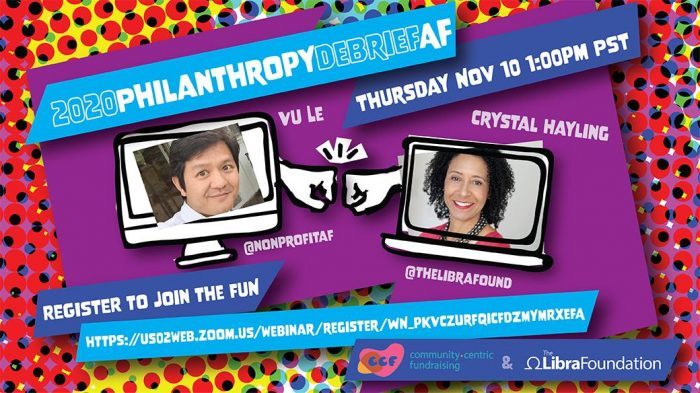Highlights:
- Cloudy prospects
- Follow the money for mother earth
- Follow the money – pandemic edition
- Driven to the edge – democracy redesign to compounded marginalization
- TAI Spotlight: upholding our Democracy
Cloudy Prospects
We start in the digital realm this week. The pandemic has made adoption of digital ID more urgent with the World Bank emerging as one of the primary funders of such projects ostensibly hoping to facilitate access to government services and foster online engagement that leads to real benefits for working people. For their part, Patrick Njoroge and Ceyla Pazarbasioglu offer three suggestions on how digitalization can help to scale up the COVID recovery: placing people at the center of the financial system, closing the digital divide, and making big tech work to benefit developing nations.
Yet, these approaches also raise new risks. How do we govern “the cloud?” Eli Levite and Gaurav Kalwani survey the wide range of policy concerns arising from these developments and highlight ways policymakers can improve governance in a way that both harnesses the benefits of the cloud revolution while moderating its risks. A similar balance is urged by a Center for Global Development team as they lay out trends, challenges, and opportunities of governing data for development.
Laura Guzman and Sophie Dyer dig into 10 questions about ethics, data and open source research, while Amy Lieberman urges more thoughtful participatory data collection and advocates for more direct engagement with women’s civil society groups or grassroots networks in developing methodologies and questions to yield more accurate data. Perhaps read alongside Catherine Adeya’s take on “meaningful connectivity” and advice for young people hungry for a career in IT.
In case you missed it, the recently published book on Situating Open Data provides several empirical accounts of open data practices, the local implementation of global initiatives, and the development of new open data ecosystems.
Follow the Money for Mother Earth
What about data for specific applications and causes? Inês Schjølberg Marques explains how data can aid extractive transparency and support decision-making in the era of energy transition. She should soon have more data to work with from Afghanistan as the country’s temporary suspension from EITI has been lifted.
What of reliable data pertaining to the climate crisis? Check out Boston University’s China’s Global Power Database featuring maps of estimated CO2 emissions, lender, deal type, technology, capacity, and operating status of these China financed power plants projects completed and planned from 2000-2033.
Those Chinese-backed projects are just a fraction of global investment. Portfolio Earth detail shows the world’s banking sector last year invested more than $2.6 trillion in sectors driving the climate crisis and wildlife destruction. Authors ask banks to focus on the impact their loans have on biodiversity as CSOs working to protect the environment in Africa make similar call to the African Development Bank to completely stop funding for polluting energies. Meanwhile, Calum Rutter reports climate finance sent to developing countries grew in 2018 based on reporting to the OECD, but progress towards international goals remains insufficient.
Full Disclosure – People behind TPA: Amira El-Sayed on ensuring equitable participation for all
Principal on global Civic Empowerment grants and investments at Luminate, Amira El-Sayed, talks of her career-long mission to making institutions more accountable at a more systemic level, the challenge of equitable and inclusive participation in the civic space, and the hope of sustainable political reform from social movements across the world.
Follow the Money – Pandemic Edition
We’re saddened by the death of Kimi Makwetu, outgoing Auditor General in South Africa and champion of integrity, but his admirers may be cheered by the arrest this week of Ace Magashule, Secretary-General of the ANC, on corruption charges. Read all the details of the case alongside the Economist’s take on whether this can empower reform efforts.
A good prompt to check out this roundup of civil society’s brave role in exposing pandemic corruption in southern Africa region and the hope they ignite in processes of accountability. Plus, exciting to see two TAI member grantees – BudgIT Nigeria and Connected Development – spearhead a new COVID19 Transparency and Accountability Project across 7 African countries designed to ensure proper management of COVID19 funds. Get a sense of the fiscal challenge to be monitored via ODI’s monthly round up on public finance and development regarding COVID-19 with lessons learnt on the economic and fiscal impact of the pandemic.
Returning to the corruption front, another scandal driven political transition – this time in Peru where Congress ousted President Martin Vizcarra over corruption allegations, creating more political uncertainty and heightened risks of violence.
Meanwhile, two major Chinese engineering companies joined the growing list of World Bank Listing of Ineligible Firms and Individuals as the bank place an 18-months sanction on them over fraudulent practices in an electrifications scheme in Zambia. Following The Sentry’s recent report on North Korean sanctions-busting efforts in the DRC, Megha Swamy advocates for better systems to aid sanctions enforcement in Sub-Saharan Africa. Similarly, Sue Hawley calls for the urgent review of corporate crime rules as Edoardo Saravalle give pointers on how the United States can effectively fight kleptocracy.
Driven to the Edge – Democracy Redesign to Compounded Marginalization

Image Credit: Indaily
As the US election starkly revealed the extent of political polarization, Thomas Carothers lays out what we should expect and points to the need to manage rather than cure. For her part, Lorelei Kelly urges us to design a democracy fueled by civic voice data.
Jeff Lovitt and Andreas Pavlou explain that open government reforms and increased civic space are crucial to EU membership bids for the Western Balkans, while the “chumocracy” among UK elites seems to be on full display in the spending of COVID funds as the well connected benefit.
On a more positive note, see how NIRAS is supporting gender-responsive procurement in the Asia-Pacific region and how these three Nigerian women are serving as pacesetters for other women in the usually male-dominated field renewable energy sector.
Gabriela Muñoz details a transparency dilemma facing community organizations working on gender equality in Guatemala, Fortunate Machingura calls for a change in framing gender discourses with a closer look on the impact of racism on gender justice, while Vidya Diwakar’s review of anti-discrimination policies leads her to urge policymakers to consider compounding multiple dimensions of marginalization (a useful frame for funders to consider, too).
The effects of marginalization are only being deepened by the pandemic, not helped by weakening of the non profit sector. Take the example of the UK, where the Financial Times reports the UK charity sector faces £10bn funding shortfall and 60,000 job losses.
Expect more demands on philanthropy and new questions asked of corporate philanthropy in particular. Paurvi Bhatt, president of Medtronic Foundation, urges corporate philanthropists to step up and reevaluate their values, including alignment to corporate practices. Past due time to address social and health inequities more head-on. Watch this space.

Essential Listen: 2020 Philanthropy Debrief AF
We enjoyed listening to Vu Le and Christine Hayling Libra of the Libra Foundation discussing what’s good and bad about philanthropy and its responses to today’s crises. Christine emphasized that the importance of funders helping to strengthen people’s ability to communicate the power of what they and their organizations are doing.
TAI Spotlight: Upholding our Democracy
Perhaps unsurprisingly, electoral processes have been weighing heavily on our member’s minds this past week…
A historic election | Open Society Foundations
Don’t miss the Foundations’ take on America’s historic election and how much hard work lies ahead in “this deeply divided country”.
Upholding our democracy | Hewlett Foundation
“The responsibility for securing democracy rests with each of us.” Read the foundation’s statement on the recent US 2020 elections as the country awaits a peaceful transition of power. Also, a good time to read Elizabeth Peters’ blog on the rules surrounding election-related activities for nonprofits.
Carry on the fight | Ford Foundation
Ford Foundation partnered with Omidyar Network and W.K. Kellogg Foundation to launch the Carry on the Fight Fund, a collaboration that will support grassroots organizations with the resources to advocate for policy change, hold elected candidates accountable to campaign promises through issue advocacy, and build long-term capacity within communities.
We must continue the fight for justice | Luminate
Following the US elections, Luminate US Director Alissa Black says we must all continue to work for justice and an equitable future.
Improving racial, gender diversity, and transparency in investment industry | MacArthur Foundation
The John D. and Catherine T. MacArthur Foundation partnered with the Kresge Foundation to systematically champion a more diverse, equitable, and inclusive investment industry.
Job Listing
- Global Fund for Community Foundations hiring Global Network Weaver – November 27, 2020
- Government Affairs Senior Policy Advisor, International Financial Institutions at Oxfam – Ongoing
- Data Architect at Open Data Institute – Ongoing
- Luminate Director, Africa – Ongoing
- Job postings at Hewlett Foundation – Ongoing
- Job postings at MacArthur Foundation – Ongoing
- Job postings at Open Society Foundations – Ongoing
- Job postings at Luminate – Ongoing
- Job postings at Ford Foundation – Ongoing
- Senior Policy Advisor for Civic Space at Oxfam America – Ongoing
Call/ Opportunities
- Call for evidence: From science to practice: Research and knowledge to achieve the SDGs – November 30
- Call for Media to Amplify Abolition – December 1, 2020
- World Justice Challenge 2021 – December 11, 2020
- Climate change and COP26 – Open call for creative commissions – December 13, 2020
- Governance and the COVID-19 Pandemic in the Global South, EGAP – December 15, 2020
- Call for submissions to SSIR Series: Social change in an era of extreme polarization – Last Thursday of every month until early 2021
- USAID’s Development Innovation Ventures (DIV) grant funding – Ongoing
- BetterTogether Challenge for innovators – Ongoing
- Call for research proposals Tax and civil society – No Deadline
- Free Digital Security Training – Ongoing
- Open Road Alliance Charitable Grant and Loan to organizations responding directly to COVID-19 – Ongoing
- Pulitzer Center Coronavirus news collaboration challenge – Applications will be reviewed on a first-come, rolling basis
- Call for proposals: Informality, tax, and the state – Proposals accepted on a rolling basis
Calendar
- The future of diplomacy: G20 in covid era – November 17, 2020 (9am EST)
- Tax for Development Webinar Series – November 17; December 1; December 15, 2020 (15:00 – 16:00 CET)
- Digital Freedom Fund Virtual Litigation Retreat – November 12-18, 2020 (excluding weekend)
World Forum for Democracy (democracy and the environment) – November 16-18, 2020
(Strasbourg, France) - Race, tech & borders – a conversation with Special Rapporteur Tendayi Achiume – November 17, 2020 (4 PM UK time)
- Accountable Now Annual Workshop – November 17-19, 2020
- RCTs in the Field of Development: A Critical Perspective – November 17, 2020 12P EST
- The Impact of Big Tech: What is the solution? — November 17, 2020 (1-2pm EST)
- OECD Global Blockchain Policy Forum — November 19, 2020 (15:35 – 16:25)
- Make Democracy Great At Last – November 19, 2020 (10am EST)
- A Procurement Path to Equity: Virtual Report Launch – November 19, 2020 (12pm, ET)
- Racial justice in philanthropy: From transactional to transformational – December 2, 2020 (2-3 p.m. ET)
- Transparency International: 19th International Anti-Corruption Conference – December 1-4, 2020 (online)
- A humanitarian rest: Impacts of a historic year – December 4, 2020 (9am EST)
- Tips for Successful Online Meetings with Major Donors – December 10, 2020
- International Open Data Conference – Postponed till 2021

